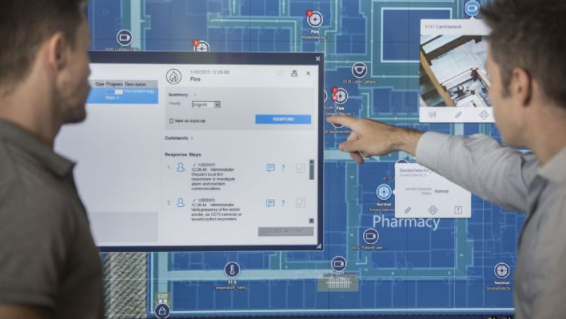Industry 4.0 has changed from buzzwords to reality in a short time. Manufacturers are adopting new technologies to reshape their business by digitizing processes on the value chain. And with new data from sensors and insights from the Internet of Things (IoT) and cloud platform analysis, advanced supply chain systems and mobile devices can increase the company's profitability and bring greater value to end users.
According to MBT Mag, the digital transformation related to Industry 4.0 aims to achieve customer first through the use of data, independent feedback, predictive analytics and artificial intelligence (AI) to continuously improve the quality and safety of products and services provided by enterprises. And effectiveness. But companies must first establish a framework to convert without overly affecting day-to-day operations. In view of this, the following are the five recommendations of companies that want to take advantage of Industry 4.0 technology.

All aspects of master data must be as complete and concise as possible and clean. The source of master data is also critical. Many companies will deploy the system first, and assume that their master data can be optimized later, but in the end there will be problems. Many companies are building data lakes to support their Industry 4.0 projects, but risking the use of turbid water to fill the data lake.
2. Assess current needs and set goalsThe mistake many companies make often is that as long as the implementation of Industry 4.0 technology is everything that is needed for success. But to use disruptive technology, quality managers should first conduct a comprehensive assessment of current status and expected results. By identifying potential barriers and opportunities, companies can strategically plan for Industry 4.0 investments, resulting in better results. For example, manufacturers need to determine if the current infrastructure system is ready to support the path to Industry 4.0 and its subsequent advantages.
Third, try before you buyThe hype surrounding new technologies and innovative technologies is difficult to distinguish even the most experienced managers. In today's crowded markets, it is important to test all products and solutions before purchasing, especially for expensive products and solutions. The key is to determine whether tangible value can be provided for a particular area of ​​the value chain and to conduct pilot programs or proof of concept for that area.
Fourth, find and retain the right talentIf companies want to adopt new technologies, they need to find and train the right people to operate and manage these tools. From advanced robotics and complex sensors to 3D printing, manufacturers need to ensure that teams develop the right skills to succeed. Therefore, companies should seek to attract and retain the best digital talent. For example, recruiters should not only focus on certificates and degrees, but should focus on key competencies that are consistent with the company's goals and future.
In addition, choosing a change agent to guide the digital transformation within the enterprise will help streamline this process. Digital conversion affects the company's ecosystem regardless of size. Digital transformation is as about technology and culture as technology. Having a dedicated person or group to guide this process will alleviate the resistance and help solve the potential challenges.
V. Planning a flexible futureIn addition to short-term goals, quality executives should also consider how Industry 4.0 will influence and change the company's long-term future. Developing a long-term roadmap and setting predetermined goals will help quality managers track business transformations and monitor areas for improvement.
Even if a plan is in place, future goals and visions should not change. Because of the often unexpected plans and sudden changes to the company's route, quality supervisors should anticipate all unknowns in advance, including launching new products, acquiring new companies, or working with other suppliers. Maintaining competitive advantage during Industry 4.0 requires a flexible process to correct and transform.
Wuxi Lerin New Energy Technology Co.,Ltd. , https://www.lerin-tech.com